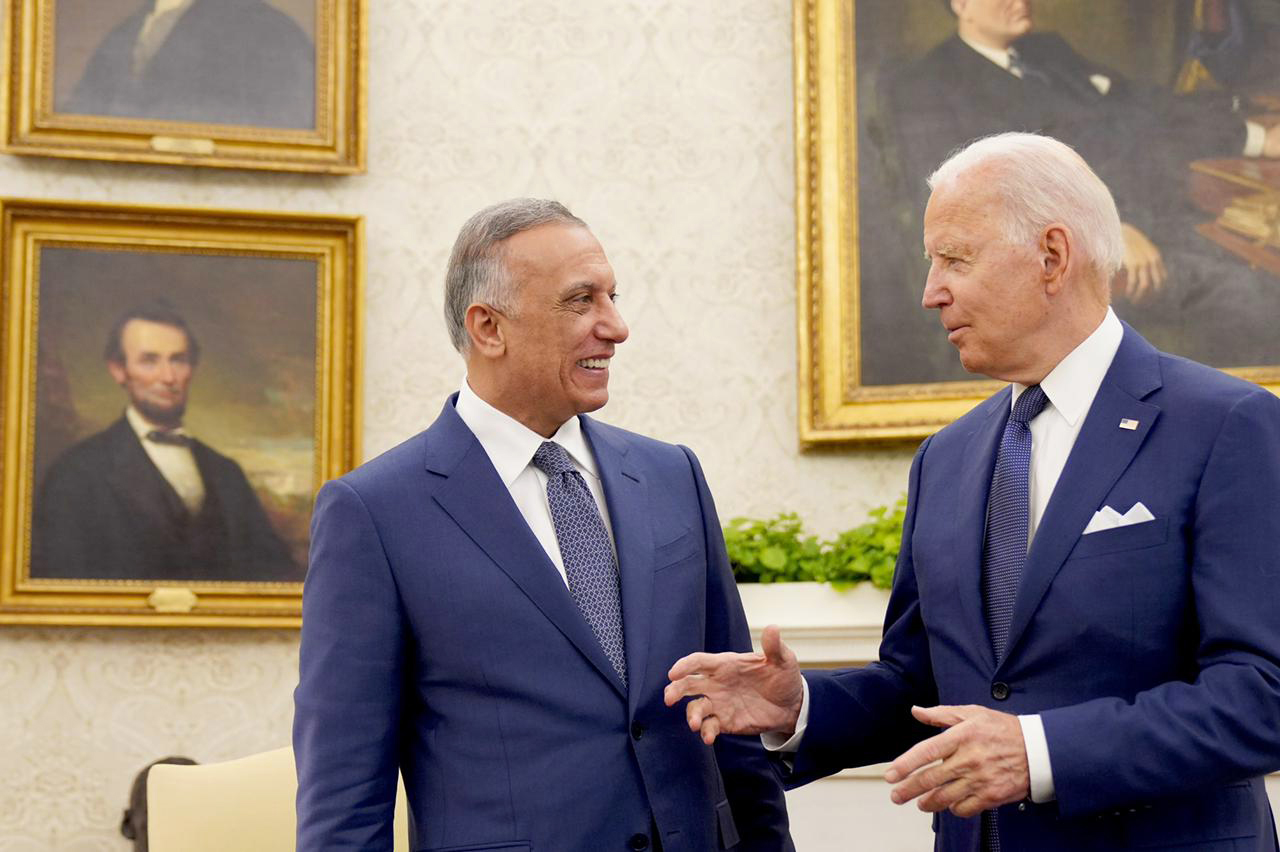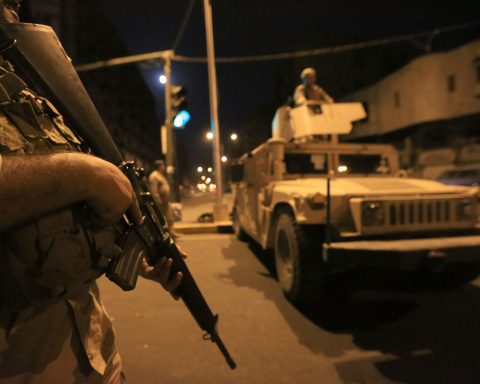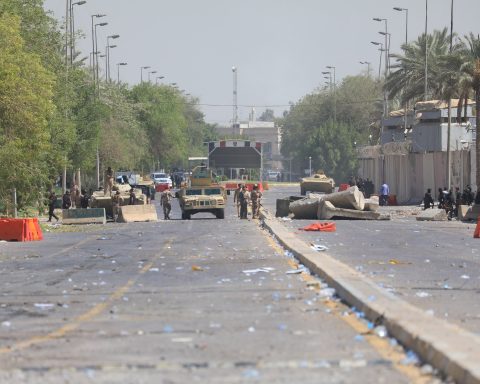US President Joe Biden and Iraqi Prime Minister Mustafa al-Kadhimi met on Monday in Washington D.C. as part of the fourth round of the US-Iraq Strategic Dialogue. Following the meeting, President Biden confirmed the United States would end its combat mission in Iraq and all US combat troops would exit the country by the end of 2021.
US sources indicate that an undisclosed number of the remaining 2,500 American forces will be removed and the roles of the remaining combat forces will be reclassified by the end of the year. The agreement stipulates that the US military role in Iraq will be entirely advisory, focusing on training and intelligence sharing.
The rhetorical focus on the designation of combat forces led to doubts about the significance of the agreement as the US presence in Iraq had already transitioned to an advisory nature, focusing on providing training and military support.
The agreement aims to provide breathing room for al-Kadhimi against increasing political pressure from Iran-backed militia groups. Militia groups have increased the frequency of attacks targeting diplomatic missions and US military personnel over the summer.
Yet, the agreement is unlikely to drastically change the US presence in Iraq as the American combat presence was already limited. This is yet another sign of the al-Kadhimi government attempting to balance between competing forces in Iraq: the US presence and Iran-backed militia groups.
Al-Kadhimi’s track record shows a willingness to work with both sides, as he is known for working with his American and Iranian counterparts during his time as the head of the Iraqi intelligence services.
Moreover, PM al-Kadhimi needs a US partnership to break its reliance on Iran and diversify its foreign relations. The recent warming up of relations with Saudi Arabia and the deepening of diplomatic relations with Egypt and Jordan through repeated trilateral summits indicate Iraq’s willingness to achieve a balance in relations with neighboring countries.
Furthermore, US-Iraq cooperation, along with Iranian support, was crucial in the campaign to defeat ISIS. The United States has also established deep economic, political, and security ties with Iraq since the 2003 invasion. Important factions of the Iraqi political elite believe Iraq needs a US presence in the country to guarantee political stability.
Indeed, Iraqi Foreign Minister Fuad Hussein talked about the possibility of extending relations beyond the security file in an interview following the Biden-Kadhimi meeting. “Relations with the US are going to be further widened, including health, cultural, and economic aspects,” Hussein said. In a previous interview, Hussein had said, “Even if US combat troops leave, Iraq cannot be left alone with its domestic issues.”
All this shows that the United States is unwilling to completely abandon Iraq, nor do Iraqi officials want the US to do so.
On the pro-Iran side of the equation, militia groups hostile to the United States rejected the agreement. The spokesperson for Kata’ib Hezbollah, Jafar al-Hussaini, vowed to continue attacks on the US mission in Iraq regardless of its designation.
While the US decision to end its combat mission in Iraq could be the result of back-channel negotiations between the United States and Iran, so-called “muqawama” groups inside Iraq have shown the ability to act independently of Iran’s preferences. A Kata’ib Hezbollah official confirmed to Amwaj Media that a confrontation is likely if all US troops fail to leave Iraq. “We may have a decision that is independent of Iran.” the official told Amwaj Media.
A resurgence of militia attacks targeting remaining US forces would put the onus on al-Kadhimi’s government to try and limit these groups’ ability to move freely and act with impunity.
To put this possibility to test, the American Embassy in Baghdad’s Green Zone was targeted with two missiles on Thursday morning. While no injuries were reported in the attack, some militia groups appear to have decided to target US positions regardless of the outcome of the strategic dialogue.
The US leadership could try to put pressure on al-Kadhimi to push back against such attacks. However, the Biden administration has also indicated it would not hold back lethal force to retaliate against attacks targeting its forces, exemplified by the June airstrikes that targeted military facilities used by pro-Iran militia groups.














